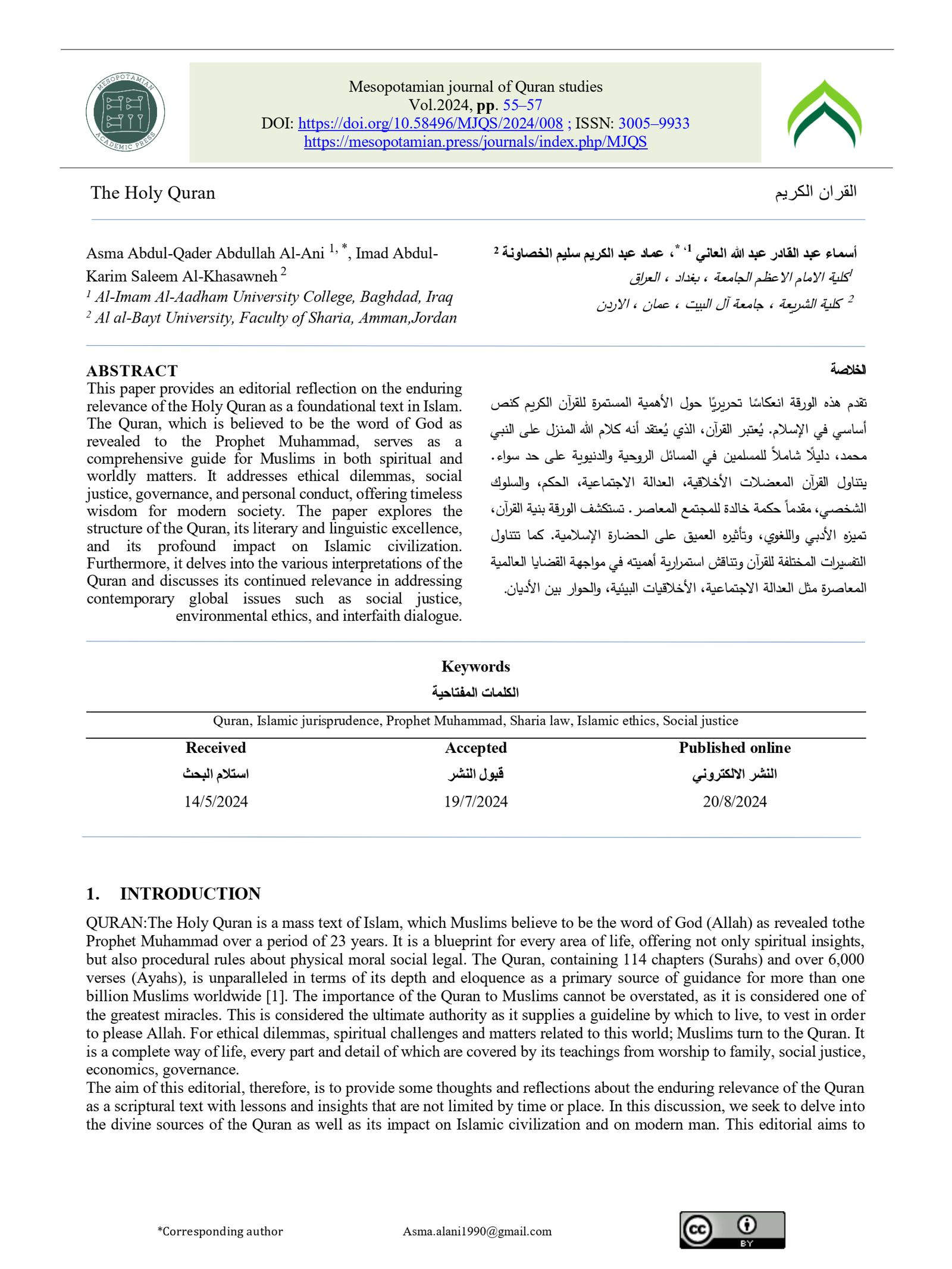The Holy Quran
Main Article Content
Abstract
This paper provides an editorial reflection on the enduring relevance of the Holy Quran as a foundational text in Islam. The Quran, which is believed to be the word of God as revealed to the Prophet Muhammad, serves as a comprehensive guide for Muslims in both spiritual and worldly matters. It addresses ethical dilemmas, social justice, governance, and personal conduct, offering timeless wisdom for modern society. The paper explores the structure of the Quran, its literary and linguistic excellence, and its profound impact on Islamic civilization. Furthermore, it delves into the various interpretations of the Quran and discusses its continued relevance in addressing contemporary global issues such as social justice, environmental ethics, and interfaith dialogue.
Article Details
Issue
Section

This work is licensed under a Creative Commons Attribution-ShareAlike 4.0 International License.
Deprecated: json_decode(): Passing null to parameter #1 ($json) of type string is deprecated in /home/u273879158/domains/mesopotamian.press/public_html/journals/plugins/generic/citations/CitationsPlugin.php on line 68
